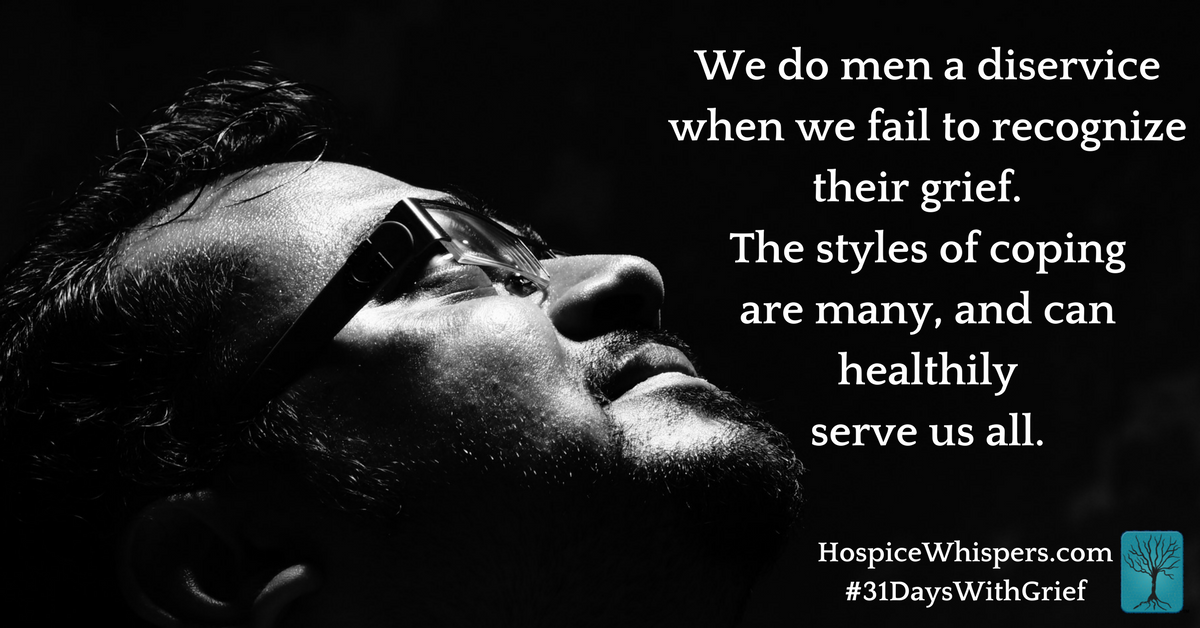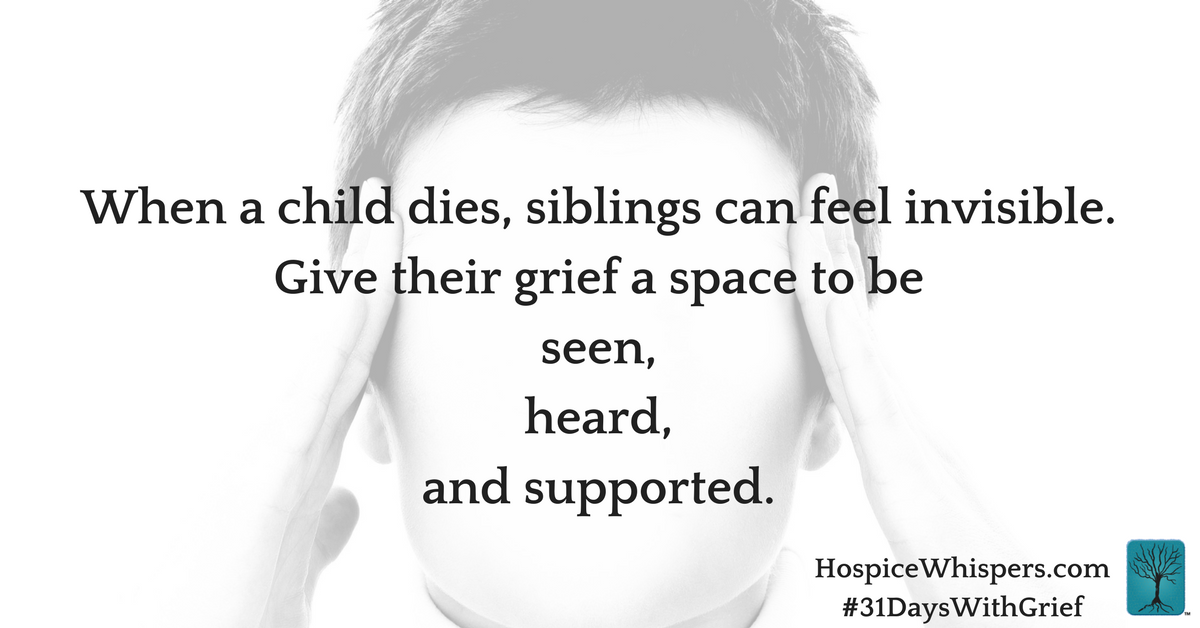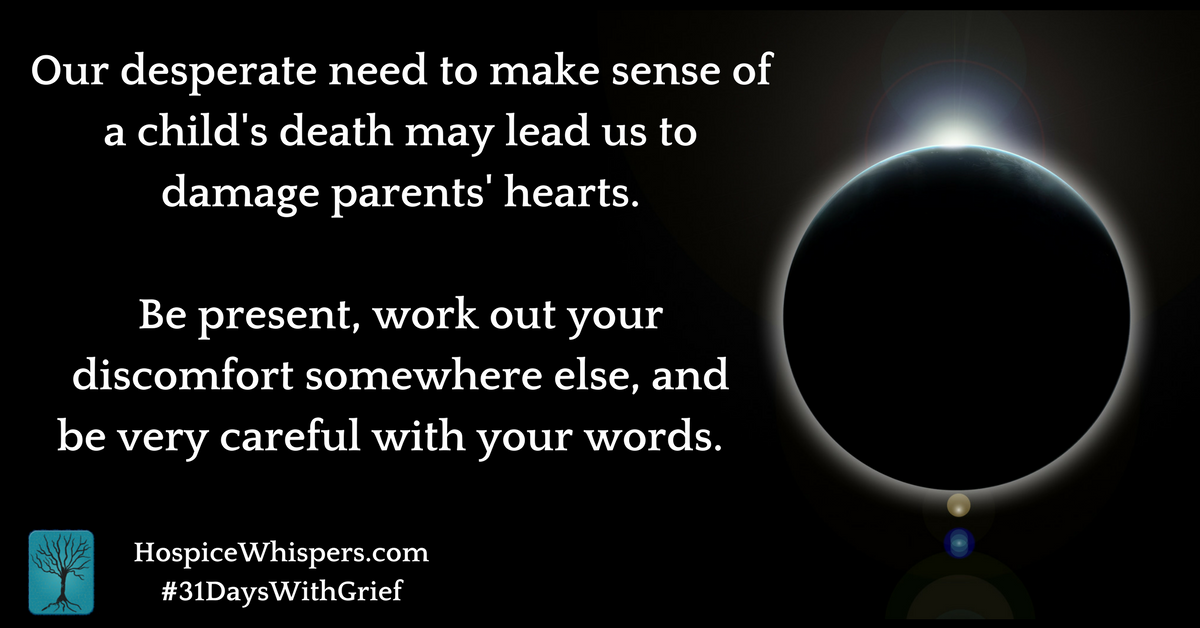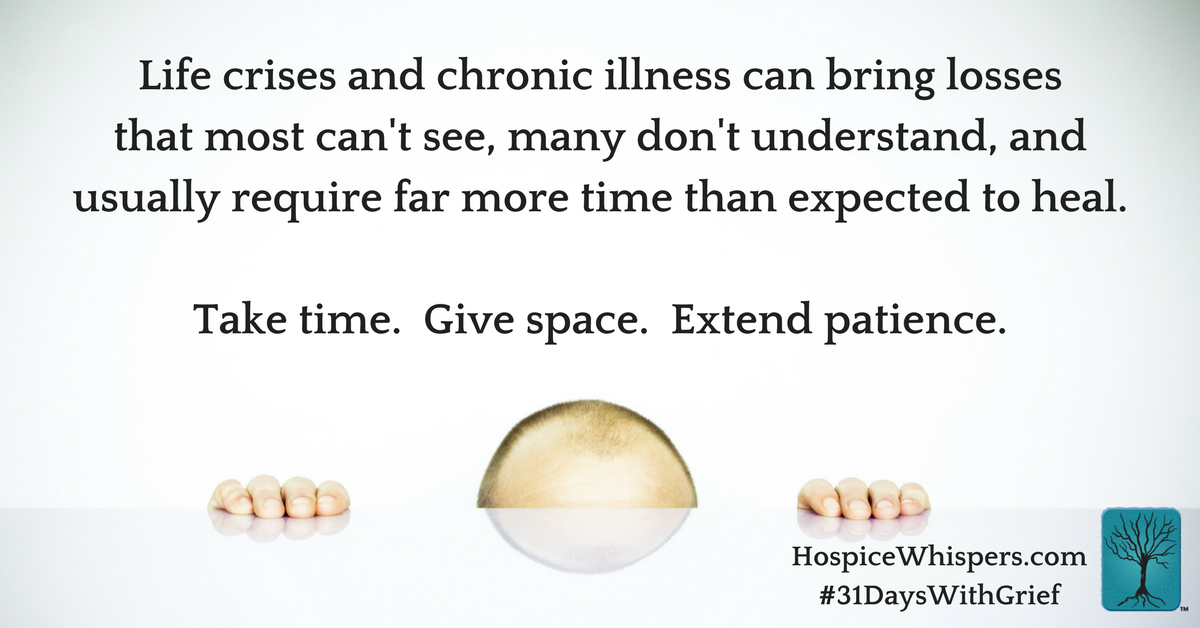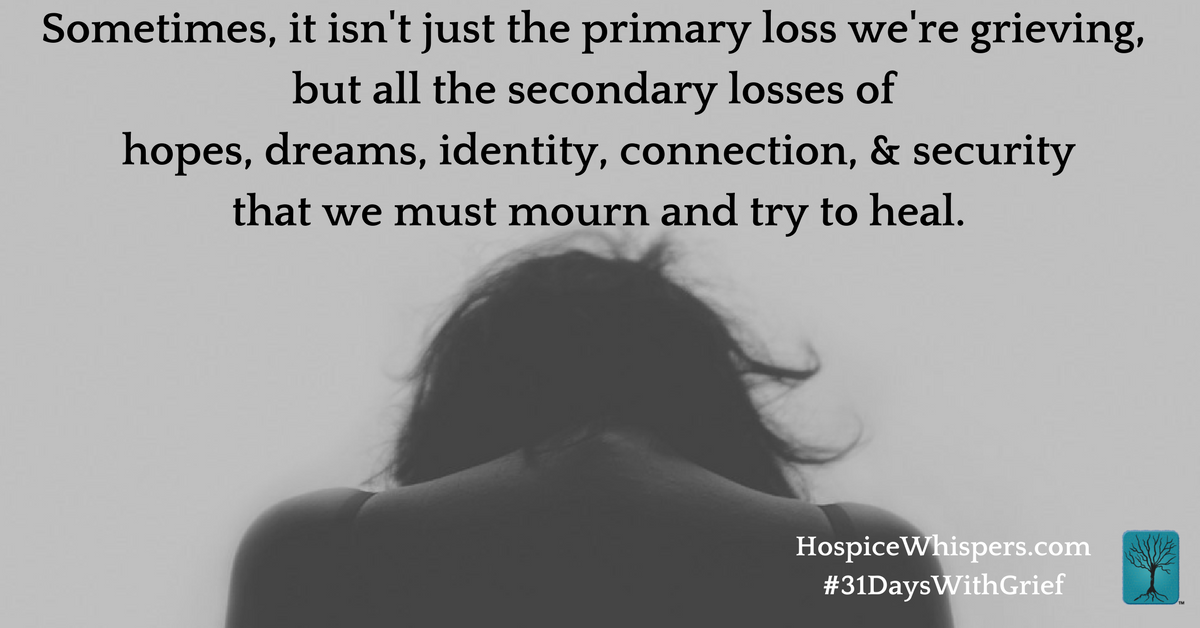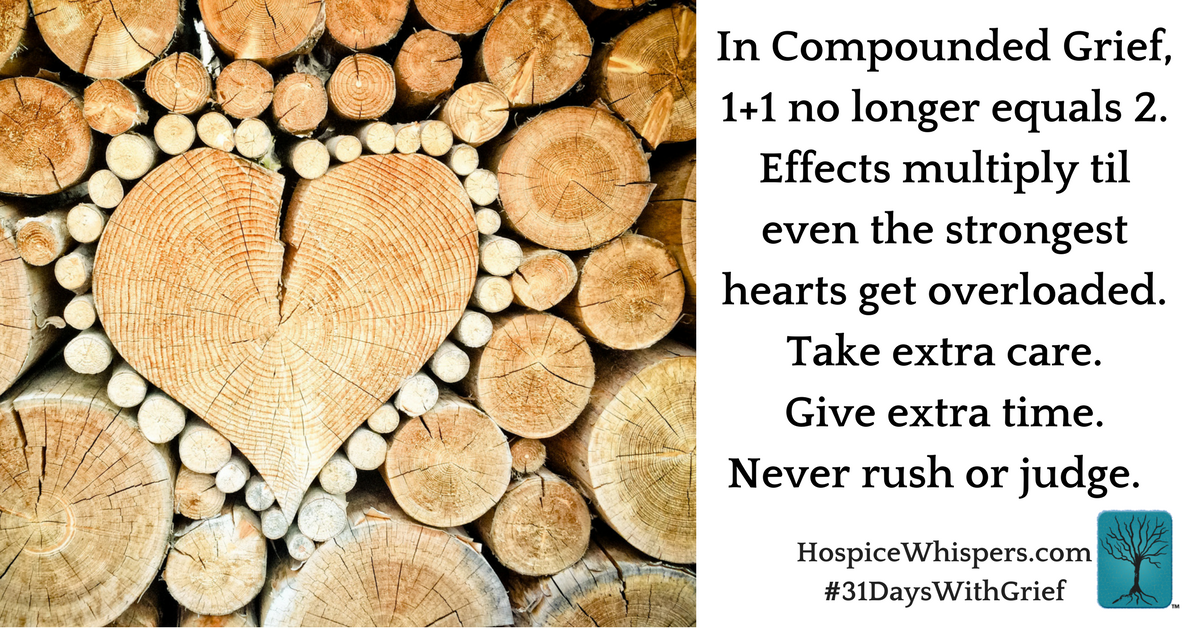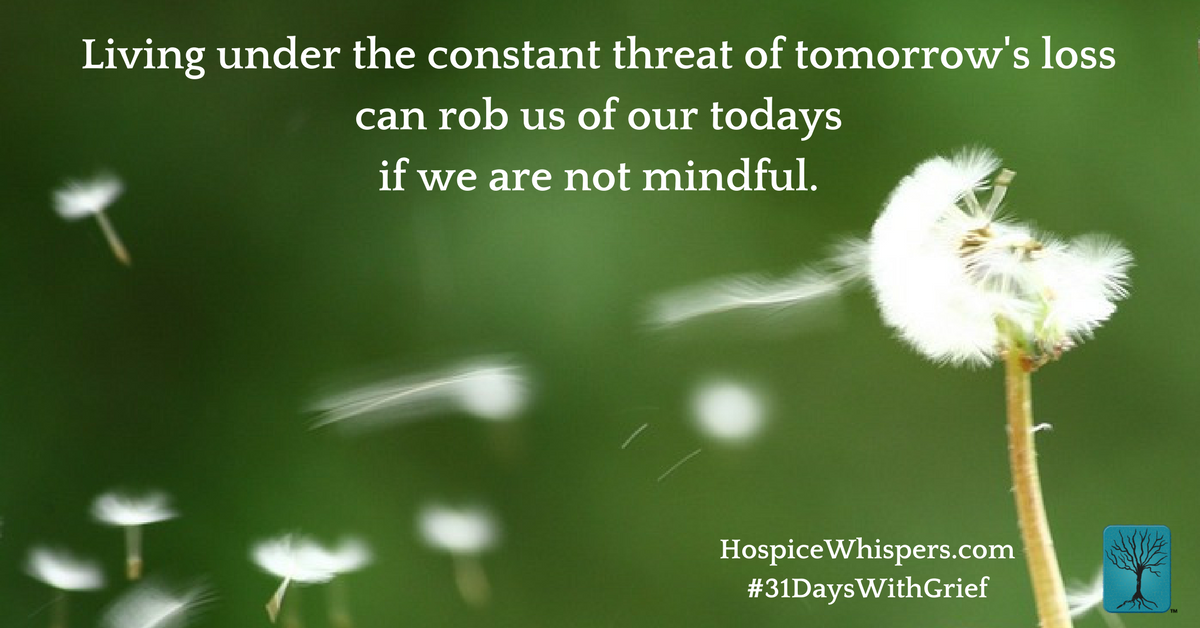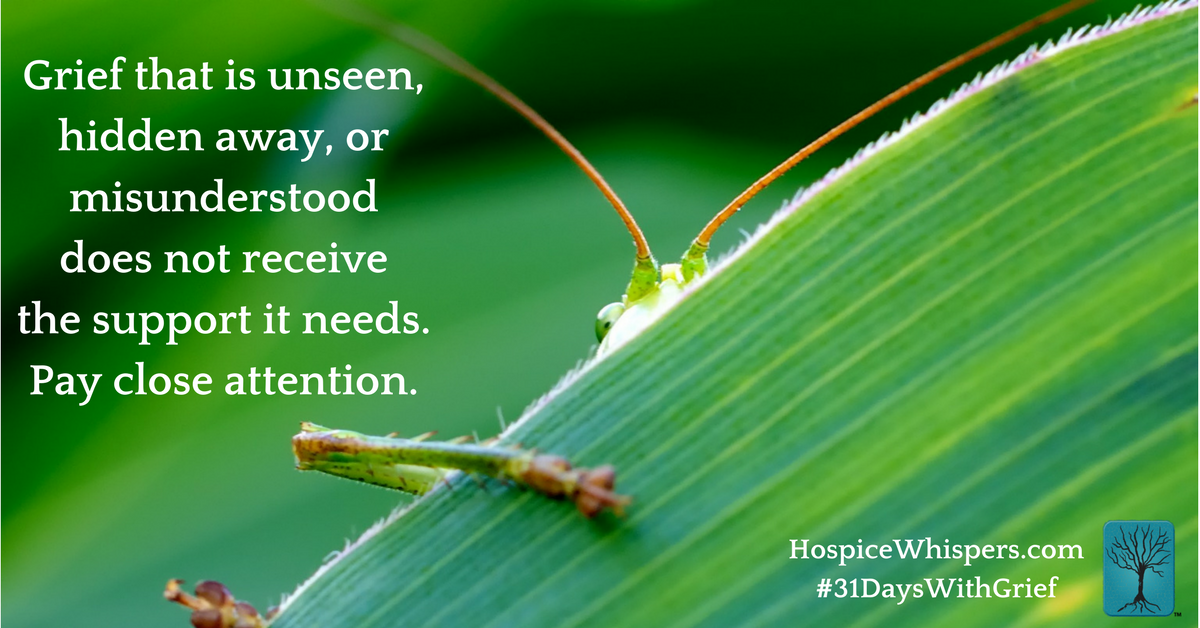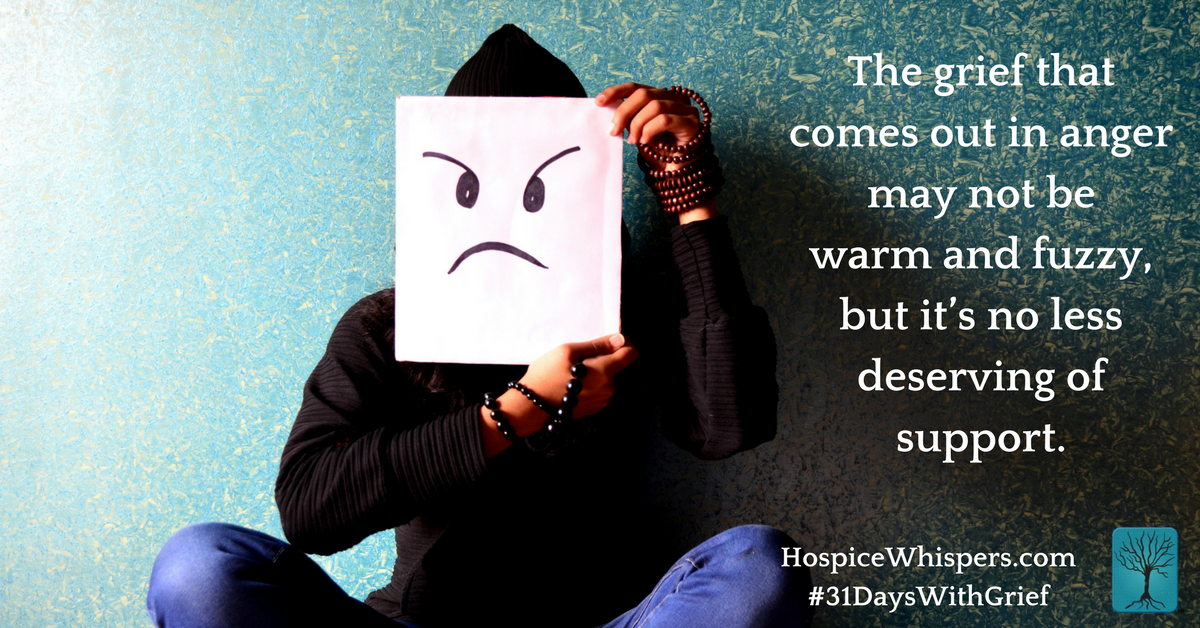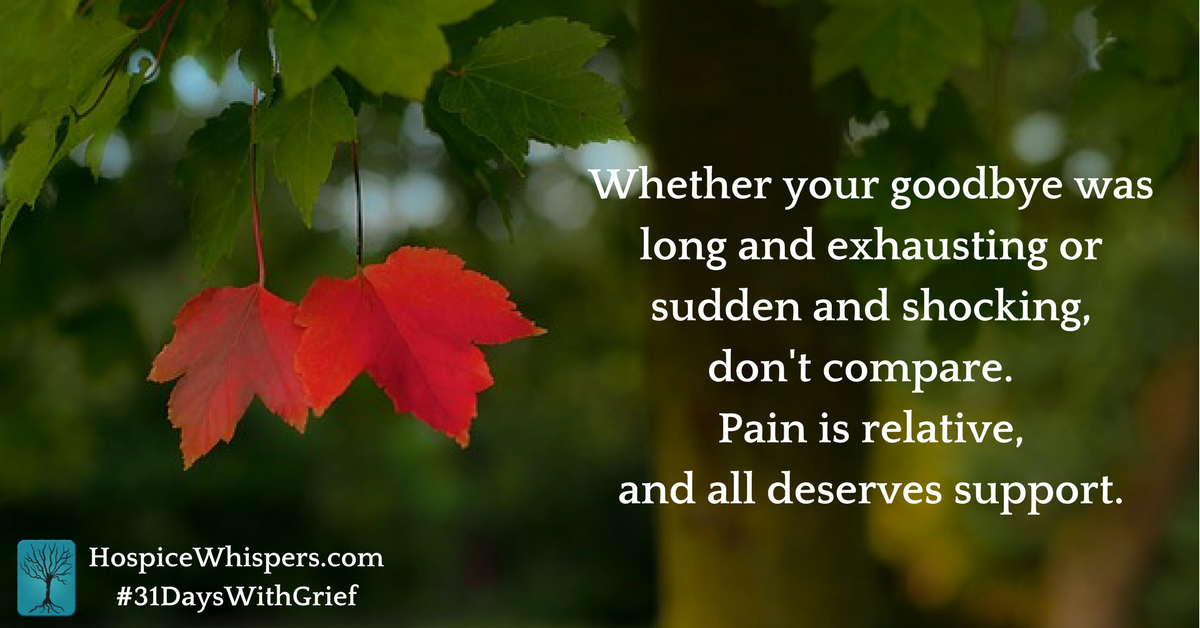31 Days of Walking with Grief: Others’ and Our Own
Day 25—Is “Masculine Grief” a Thing?
This is a month-long series to support persons grieving and those who love them. It includes content from “Sharing Our Stories: A Hospice Whispers Grief Support Workbook” available through Amazon and wherever books are sold.
Stigmas around death and grief…
With our technological advances, we’ve come to be pretty disconnected with death in the last century. Compared to our previous lives on farms and ranches, when we spent more time in nature with the ebb and flow of fields, livestock, and even the elderly members of the family who lived with us, we rarely touch it, now. We’ve come to see death as a failure to be prevented rather than a natural and expected part of daily living.
Our stigma around death extends to our discomfort with grief. Studies show we have a very set, prescribed view of what is and is not acceptable, even attractive, in our grief responses (Kubitz, Thornton, and Robertson, 1989). We have a very narrow window of tolerance for the ways in which those mourning are allowed to express or cope with their grief before they face our judgment.
Women who openly emote immediately following a death are seen with compassion, understanding, and support, so long as their response isn’t considered “too much”. As time passes, if women continue to openly show their grief through tears, they’re judged, “Isn’t she over it, yet?”
Men face even more…
Men, on the other hand, are in even more of a bind. If they show no emotion right after a death, they can be judged as cold and disconnected but, if they show emotion, we write them off as weak and overly sensitive. If they show grief after time has passed? Forget about it. We can’t handle that, and it’s not just men who judge other men; they face it from the women in their lives, as well.
This very insightful piece from Mark Mercer points out some of the differences in the ways that men may grieve that are often misunderstood and not recognized for what it is.
We may think that men are not grieving, but it’s because we tend to think of the stereotypically feminine style of grief as being the only way.
In my family, I watched the men work for 2 days to design and build a wheelchair ramp that would withstand a tornado, even though it was pretty clear our loved-one’s decline was so rapid he would never actually be able to use it.
Working side-by-side in silence, they sweated and pounded and solved a practical problem for the man whom they loved who could no longer carry 4x4s and cement for himself. It was what they had to give and how they processed the circumstance. But I also know they later cried in private.
Being physically engaged, working out the energy of powerful emotions through movement and physical labor, taking time alone and in silence to solve problems and consider practical matters are some of the ways many men may be more likely to grieve.
Research is still teasing out whether that has to do more with genetics, the way we’ve taught men to grieve, and/or whether those are the only options we allow them to engage in. In reading the Mercer piece above and remembering my own family’s story, I have to wonder, if our society could allow it, if more men would more easily demonstrate an emotive style of coping.
A healthier view for us all…
Researchers once joined in with this dualistic view of masculine vs. feminine grief—men work logically and in silence while women cry, talk, and seek support. Now, we realize that these two styles are opposite extremes of a continuum with variations everywhere in between that both men and women can effectively use to cope based on their cognitive styles, culture, responsibilities, nature of the relationship with the deceased, etc.
These two styles are more commonly being called Instrumental (the more stereotypically masculine means of coping) and Intuitive (what we generally label feminine grief). An excellent interview with grief expert, Ken Doka, contains even more information about these styles.
We now know that whatever works for a person in coping with their grief is what we must support and that we do everyone a huge disservice when we pigeon-hole men and women into one particular style. The Instrumental and Intuitive terms promoted by Doka and others is a good place to start with getting over our narrow thinking and stigmatizing views.
Some research even demonstrates that if men and women are feeling stuck in acute grief later in their grieving process, problem solving (Instrumental) interventions are most successful with women and affect-stimulating (Intuitive) interventions are more helpful for men. It’s as if their preferred (or assigned!) style didn’t work for them in the first year, and they needed another coping style to help them come further through their grief.
Regardless, there are three points to make here:
- We must not miss that men are grieving just because it doesn’t look like the stereotypically feminine/emotive style of grief.
- We must not pigeon-hole men into only one coping style, but allow them the full range of options on that spectrum between Instrumental and Intuitive styles mentioned above.
- Women can clearly find some relief from exercising the styles more often attributed to men, and should feel free to explore those ways of coping, as well.
Taking off the labels that can confine us, opening our eyes to see grief in all its many forms, and allowing everyone to access whatever tools work best for them in their circumstances is one of the important tasks ahead of us as we mature in our understanding of bereavement.
Perhaps Randall Horton said it best at the end of his beautiful piece in the Huffington Post,
“I dream of a world where grief is not gendered and where masculinity is not marked by solitary sorrow.”
And so may it be, for the sake of us all.
Peace,
Carla
 Rev. Carla Cheatham, MA, MDiv, PhD, TRT has served hospices as a chaplain and bereavement coordinator. She’s the Section Leader for the Spiritual Caregivers Section of the National Hospice and Palliative Care Organization and an adjunct professor at the Seminary of the Southwest. Through her Carla Cheatham Consulting Group, Carla provides training and consulting for professional caregivers nationwide. She is the author of Hospice Whispers: Stories of Life and its companion volume, Sharing Our Stories: A Hospice Whispers Grief Support Workbook. Her next book, On Showing Up with Suffering: Others’ and Our Own, is set to publish in 2017.
Rev. Carla Cheatham, MA, MDiv, PhD, TRT has served hospices as a chaplain and bereavement coordinator. She’s the Section Leader for the Spiritual Caregivers Section of the National Hospice and Palliative Care Organization and an adjunct professor at the Seminary of the Southwest. Through her Carla Cheatham Consulting Group, Carla provides training and consulting for professional caregivers nationwide. She is the author of Hospice Whispers: Stories of Life and its companion volume, Sharing Our Stories: A Hospice Whispers Grief Support Workbook. Her next book, On Showing Up with Suffering: Others’ and Our Own, is set to publish in 2017.

